Body language is often louder than words. One of the more subtle but intriguing gestures is nose touching.
Although it can seem to be a subconscious habit, experts say that it can tell a lot about an individual’s feelings, thoughts, or even hidden motives.
So, what does it really mean when an individual touches his or her nose in your presence?
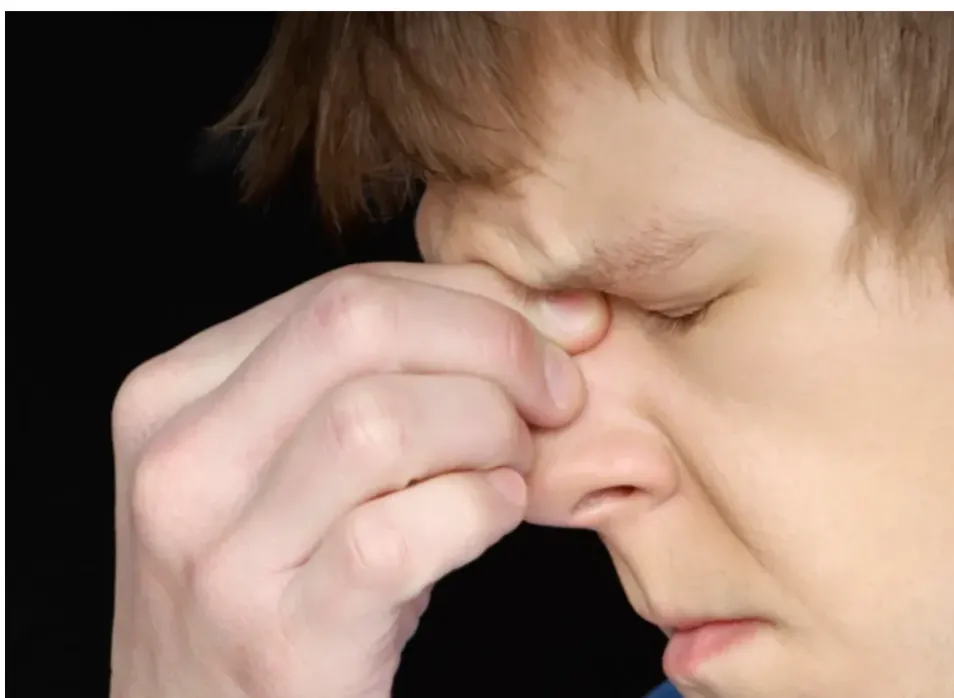
Adrianne Carter, a British communications and strategy specialist, outlines that rubbing or touching the nose can be an unobvious disagreement signal.
During an interview on TikTok, she mentioned that if the person doesn’t have a cold or is not trying to itch something, then the gesture could mean that they don’t agree.
She added that if one touches their nose when they speak, it could mean that they don’t necessarily believe or are not sure in what they say.
This minute action is a subconscious method of expressing uneasiness or hesitation regarding their own words.
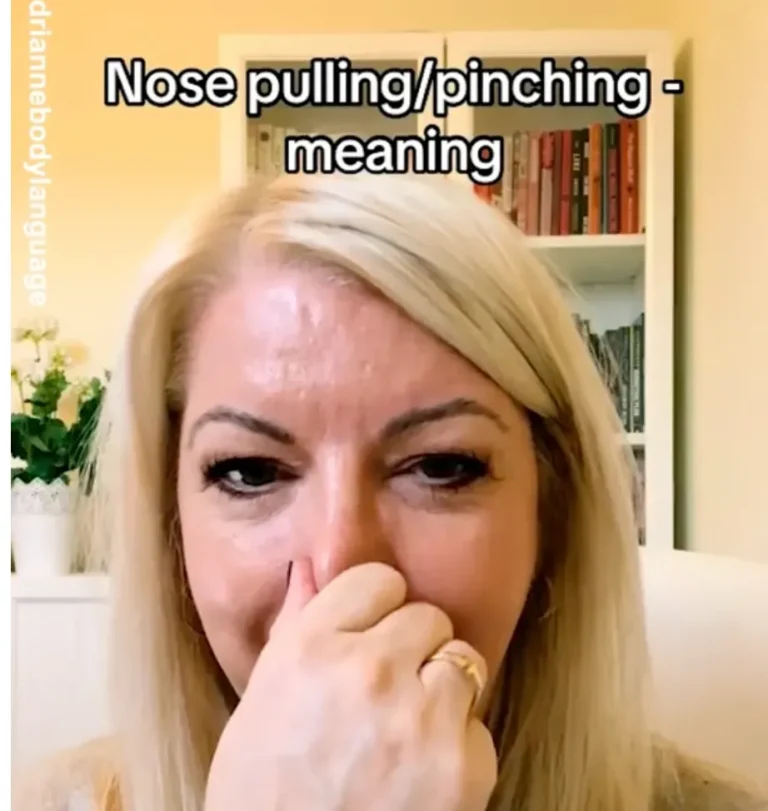
Individuals tend to form little bodily habits, called self-soothing gestures, when they feel anxious or nervous. Rubbing the nose could be one.
If one absent-mindedly strokes their nose when answering a question, then they might be nervous or uncertain.
But that is not necessarily always a guarantee that they are lying—it is just a sign that they are stressed or ill at ease.
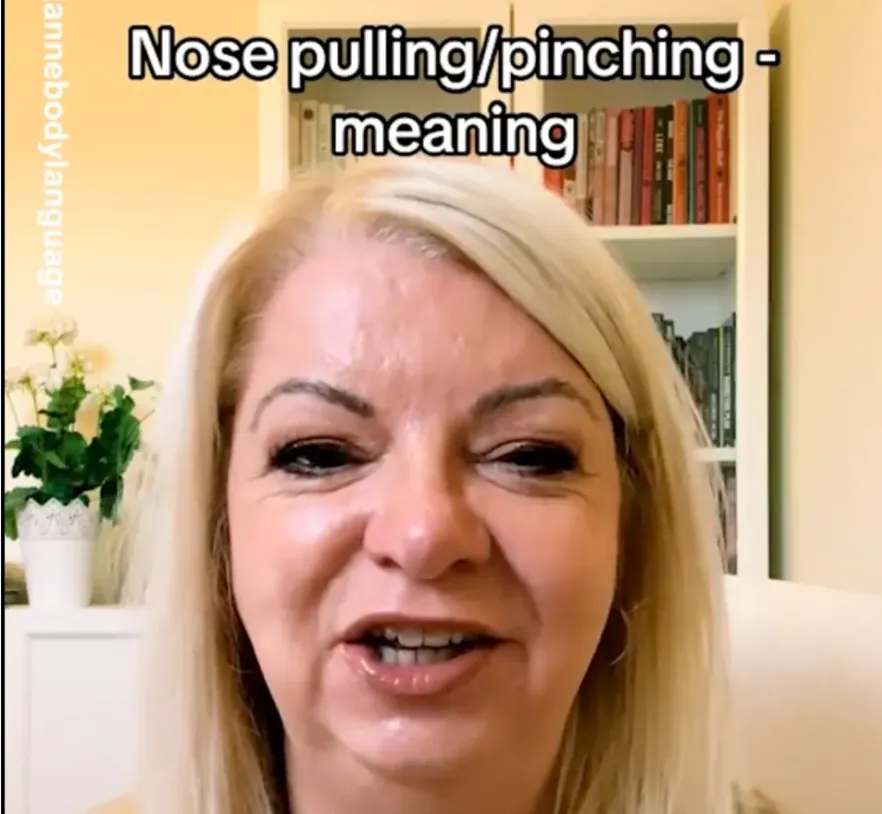
Other scientists are sure that nose-touching is linked to deceit. Psychological studies have established that the body receives a small shot of adrenaline when people are not telling the truth, filling the nose with blood and causing an itch—the so-called “Pinocchio effect.
It was discussed on “The Diary of a CEO podcast by Vanessa Van Edwards”, an American body language expert and Science of People creator.
She discovered that only the almost universal majority of people can always detect a lie only 54% of the time—so flip a coin and save yourself some hassle!
Nose-touching is not necessarily a sure sign of lying, and there are things you should consider before accusing someone.
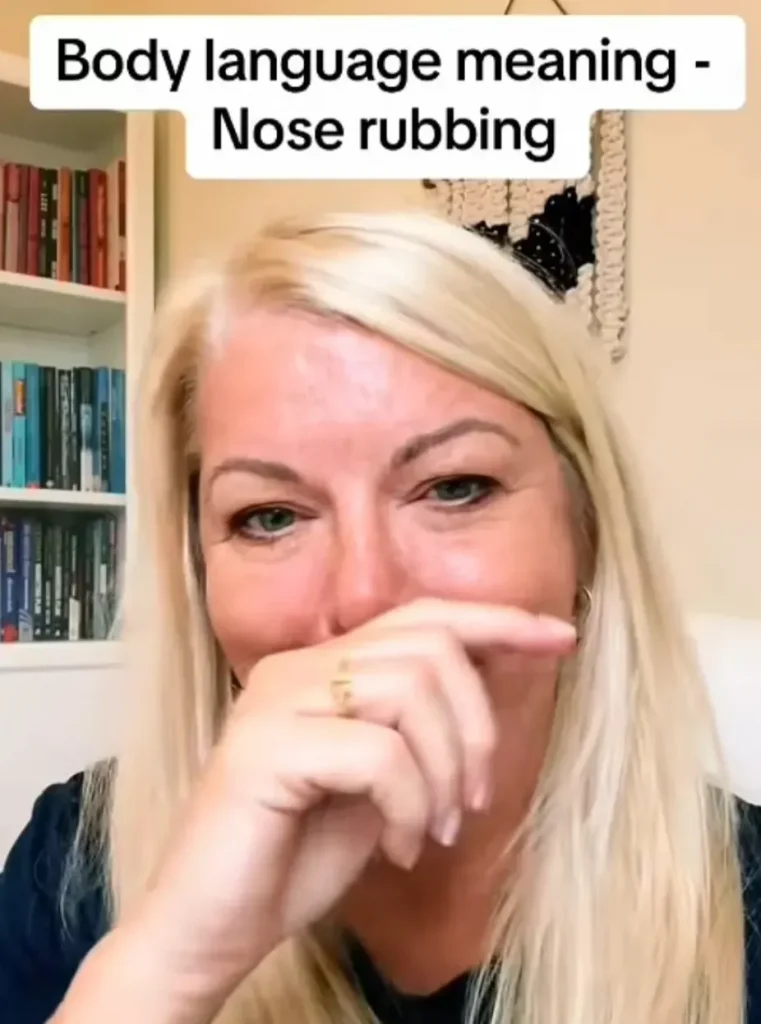
Some people touch their nose when they think. It is a habitual movement that gives them a conduit to focus as they process information.
If a person does that while you are talking to them, they might be thinking slowly about what you are saying or attempting to come up with something to say.
In some cultures, a nose touch is a sign of shared knowing or jest.
An example of two individuals throwing glances and one of them lightly touching the nose can mean, “We both know what is really happening.
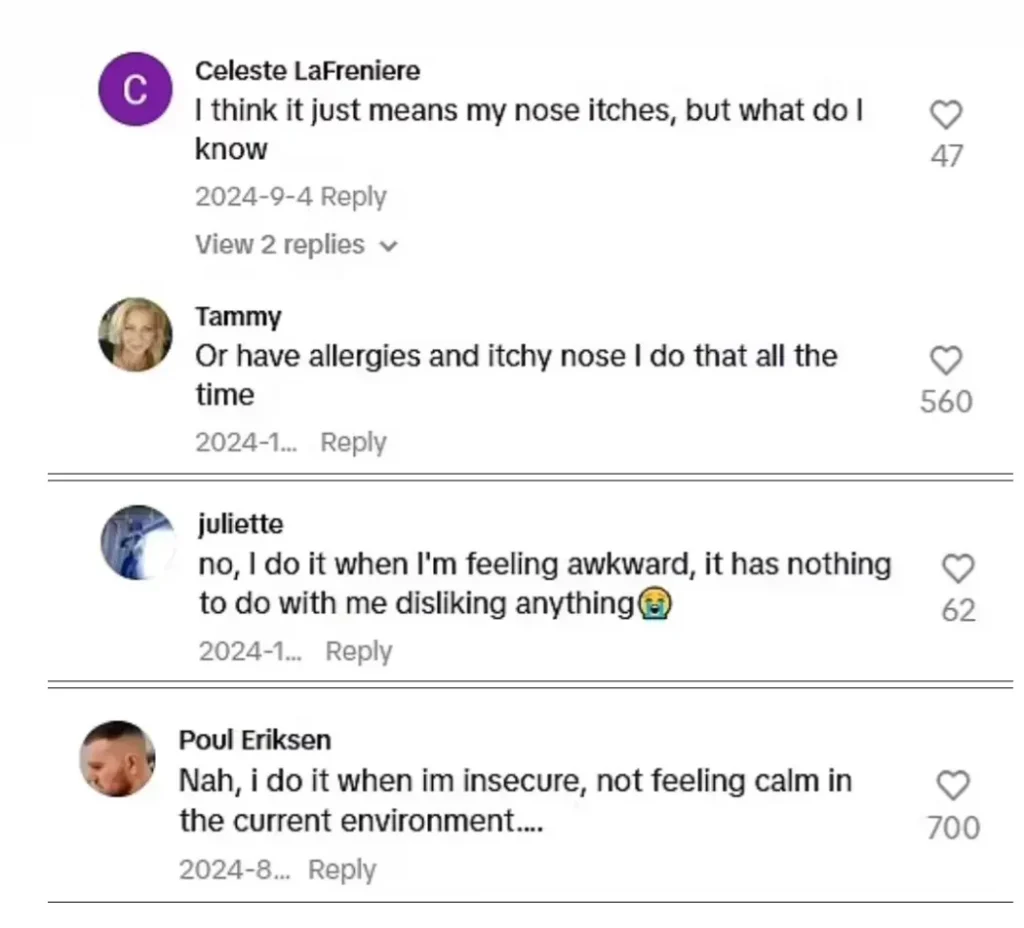
When an individual feels uneasy in a social situation, they are able to form unconscious habits to comfort themselves, such as nose-rubbing.
If they are shy or hesitant, such a habit might be a sign of insecurity and not dishonesty.
Because there are so many possible meanings attached to this one gesture, looking for other telltale signs is important prior to jumping to conclusions.
Check for:
• Facial expressions—Do they look nervous, uneasy, or calm?
• Hand movements—Are they fidgeting or crossing their arms?
• Tone—Is their voice even, uncertain, or quivering?
• Overall body language—Are they evading eye contact or leaning back?
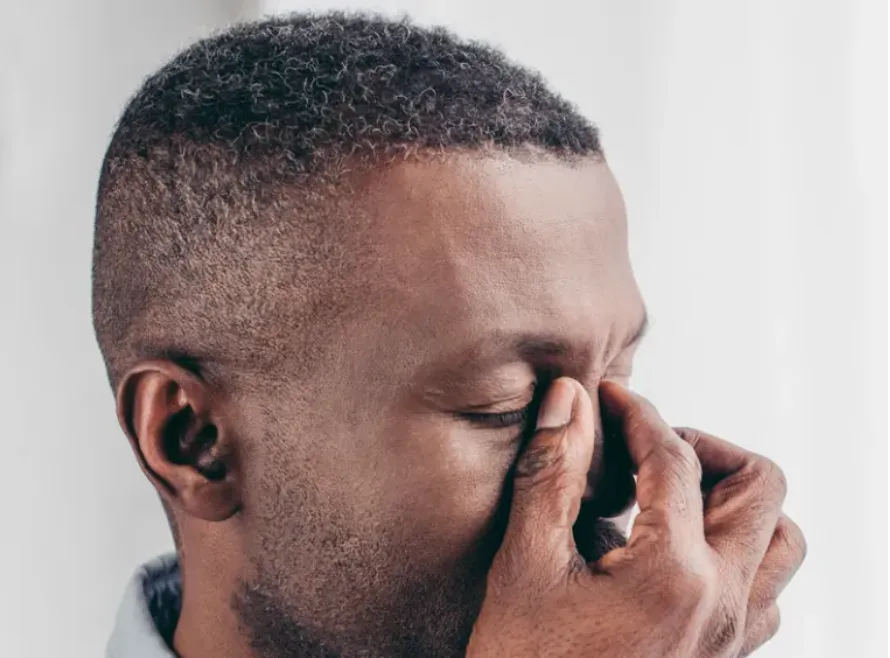
No one movement alone can ascertain what a person is thinking or feeling. Yet, when put together with other nonverbal body language cues, nose-touching can reveal helpful information about an individual’s mental state.

Next time a person touches his nose in front of you, don’t jump to conclusions—consider the bigger picture!
What do you think of this gesture? Have you ever seen it in conversations? Share your thoughts in the comment!





